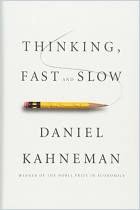加入 getAbstract 阅读摘要

加入 getAbstract 阅读摘要
Madeleine L. Van Hecke, Lisa P. Callahan, Brad Kolar and Ken A. Paller
The Brain Advantage
Become a More Effective Business Leader Using the Latest Brain Research
Prometheus Books, 2009
看看什么内容?
Understand how your brain functions and it will work better for you.
Recommendation
Great business leaders strive to improve their knowledge and capabilities, and to gain as much experience as possible. However, most executives do absolutely nothing to develop their cognitive processes, that is, to improve the way their brains work – although the brain is malleable and teachable according to clinical psychologist Madeleine L. Van Hecke, cognitive neuroscientist Ken A. Paller, learning authority Lisa P. Callahan and management expert Brad Kolar. The authors step forward to help businesspeople enrich their brains, anyone’s most crucial tool. This book presents up-to-date brain research and down-to-earth tips on how to employ this information to become a more effective leader. getAbstract recommends this unusual, intriguing book to anyone who wants to think more clearly.
Summary
About the Authors
Madeleine L. Van Hecke is a licensed clinical psychologist. Lisa P. Callahan directs knowledge management activities for Accenture’s outsourcing practice. Brad Kolar heads Kolar Associates, a consultancy. Ken A. Paller is a Northwestern University cognitive neuroscientist.























Comment on this summary